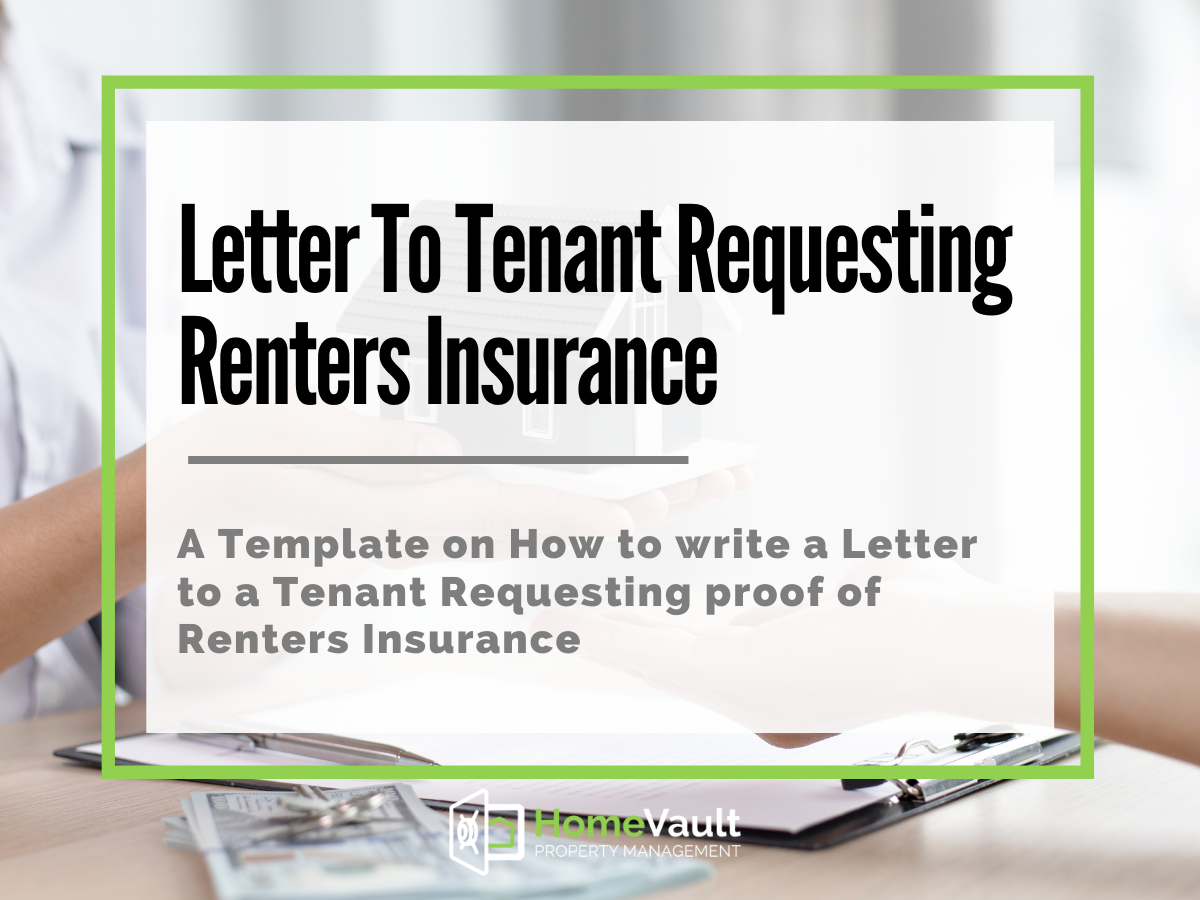The Landlord Guide to Renters Insurance

Gone are the days when all landlords did was collect rents at fixed intervals. As such, landlords require their tenants to carry renters insurance.
These soaring tenant expectations often result in greater competition, and with that comes the need for landlords to prove why their offering is better than the plethora of other options available.
However, as pressured as you may feel to meet renters’ demands, you need to remember that your renters also have certain liabilities toward you and your property. This is why you need to be as clear and precise in demarcating your responsibilities as possible.
While having landlord’s insurance can greatly help when trying to draw the line between where your responsibility truly begins and ends, the benefit of renters insurance coverage for landlords can take you a step further in maintaining a healthy relationship with your tenants. Read on to know-how.
What Is Renters Insurance?
Table of Contents
The short renters insurance definition is that it is property insurance providing coverage for a policyholder’s liabilities, belongings, and living expenses if a loss event occurs. It can be availed by anyone renting or subletting a single-family home, duplex, apartment, studio, condo, townhouse, or loft. The policy basically protects against losses to the tenant’s personal belongings within the rented property.
Additionally, renters insurance protects tenants against losses associated with liability claims, such as injuries happening on the premises that aren’t because of a structural issue with the property (in such a case the landlord’s—not renter’s—policy would be valid).
Most companies covering renters insurance offer three basic types of financial protection:
- Coverage for personal possessions
- Liability protection
- Additional living expenses (ALE) protection
Now that you have an idea about what renters insurance truly encompasses, let’s look at why you really want to require your tenant to hold a renters insurance policy.
Why Do Landlords Require Renters Insurance?
Although there’s no one-size-fits-all solution when it comes to answering this question, requiring renters insurance in the lease is always the safe option, and that’s for several reasons. This will especially help you in the long run if you are planning to take the BRRRR (Buy, Rehab, Rent, Refinance, Repeat) route and are looking at real estate investing as a full-time business.
Firstly, by ensuring that a tenant opts for the renters insurance, a landlord will protect both themselves and their tenant(s), in the event of accidents.
An added layer of protection never hurts when it comes to renting your property. However, since real estate laws greatly vary by state, the best practice is to speak with an attorney before adding a renters insurance clause in your lease agreement. The amount of coverage you require from a renters insurance policy is totally up to you and your renter to decide, but be sure to discuss the same with your attorney as well.
Can A Landlord Require Renters Insurance?
YES, we actually advise landlords to ask for renters insurance policy. Landlords should insist that their renters have insurance to help avoid potential disputes by requiring renters insurance in the lease. This is in anticipation if the tenant’s belongings are damaged while on the property, as well as to reduce their liability in legal claims.

Benefits of Renters Insurance for Landlords
So how does renters insurance benefit the landlord? Let’s look at some of the most important benefits of renters insurance.
It Mitigates Lawsuit Threats
Renters insurance can go a long way in keeping you at bay with any court settlements. If you agree to keep a tenant that doesn’t have rental insurance, and there’s an occasion where damage occurs to the tenant’s belongings, chances are they will try to claim that the landlord is responsible for the damage.
Consider this scenario: a renter has family over, and a guest gets injured at the property. The renter does not have renters insurance, and the injured guest (or the hospital) files a claim against the landlord. Even if the landlord’s insurance company accepts to pay, higher premiums are sure to follow. However, if the tenant did not have renters insurance, it would take the landlord completely out of the matter.
It Balances Responsibility
If a fire or some other damage-causing incident occurs on your property, the renter(s) may feel that you are responsible for providing them with a temporary shelter to stay at.
Some states, in fact, make it mandatory for a landlord to provide relocation benefits in such a scenario. However, tenants with renters insurance probably won’t be needing this from you. Their insurance provider will handle this, and you will be free to go about your repairs.
Helps You Find Responsible Tenants
If a potential tenant claims that they can’t afford renters insurance coverage, it is likely that their earnings do not meet your acceptance levels.
If an applicant cannot afford the monthly rate for renters insurance, you are risking renting to a tenant who won’t be able to pay rent on time or at times, even in full. There are higher chances of such a thing happening because many renters prefer to purchase and maintain renters insurance for their own benefit, irrespective of whether they are required to do so or not. Therefore, if you’ve got the slightest doubt, it’s best to look for another applicant.
It Covers Your Deductible
If a renter happens to damage your property through circumstances avoidable and unavoidable, such as accidentally causing a fire, your insurance policy may bear the repair costs. However, you will be left paying the deductible, which can demand a considerable amount of money. If the tenant has renters insurance, the policy will likely cover your homeowner’s insurance deductible. This further mitigates the financial burden of this situation on your end.
Both you and your tenant(s) will benefit from purchasing and maintaining a renters insurance policy, and it will keep either of you from having to deal with uncomfortable legal and financial scenarios in the future. Therefore, it is important for a landlord to require renters insurance now more than it ever has been.
Renters Insurance Coverage
As discussed earlier, renters insurance helps cover unanticipated events — otherwise known as covered perils. You may not always be able to avert certain unwanted situations, such as a break-in, a visitor’s injury, or theft, and that’s where renters insurance steps in.
To determine an appropriate renters insurance coverage amount, a tenant needs to take a look at the stuff they own. Typically, they can add up all of their belongings and use that to estimate liability insurance of up to the amount of at least $100,000.
This table breaks down the various basic types of coverages in a renters insurance policy and what they normally cover:
| Coverage Type | What it may Cover | What isn’t typically Covered |
| Personal Property | The cost to repair or replace your renter’s belongings, such as clothing, furniture, and electronics, is up to the limits of the policy | Personal property loss over the coverage limit |
| Liability | Repairs if your renter accidentally damages someone else’s property, or a guest’s medical bills if they’re found responsible for the injuries | Liability protection over the coverage limit |
| Additional Living Expenses | Additional costs incurred by your renter, like hotel bills, if your property is damaged and left uninhabitable | Damage to the structure of the building being rented (your premise) |
All in all, renters insurance has a lot of underlying benefits, not just for the tenants, but for landlords as well.
One best practice here would be to have the tenant show proof of renters insurance yearly, typically as a prerequisite for renewal. If renters insurance is a mandated part of the lease, the tenant’s canceling of the policy or allowing it to lapse is grounds for termination.
Also, ensuring that your renter understands the importance of having renters insurance before they sign the lease can take you a long way in finding lasting tenants, fostering better relationships with them, and having trouble-free experiences.

About the Author
Abhi Golhar is a nationally syndicated media host, entrepreneur, and sought-after speaker with a large national following and wealth of resources to share in the Real Estate investment industry. He has built and manages a sizable, profitable investment portfolio across the Southeast US, with expertise in benchmark markets.



Hello,
This is a very good article regarding Renters insurance. I love to read your article. you have such unique content. The way of writing is mind-blowing.
Thanks for giving us such a great post.
keep sharing and posting.
Best wishes,
Top1insure
How interesting that a landlord can require renters insurance. I am moving into a new rental home this month. I will also find a good renters insurance service locally to help.